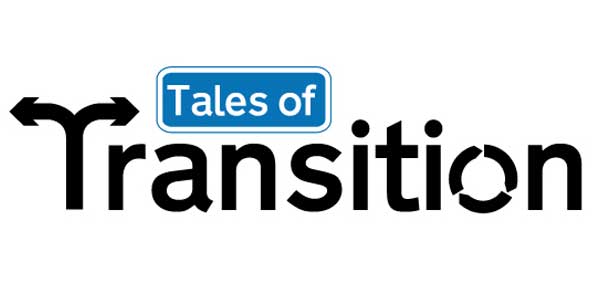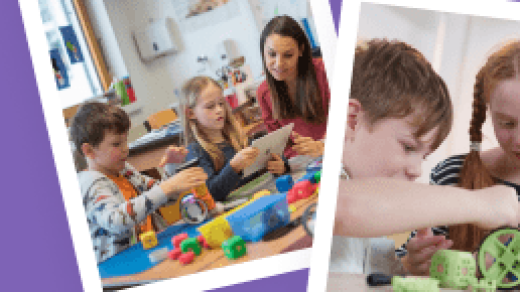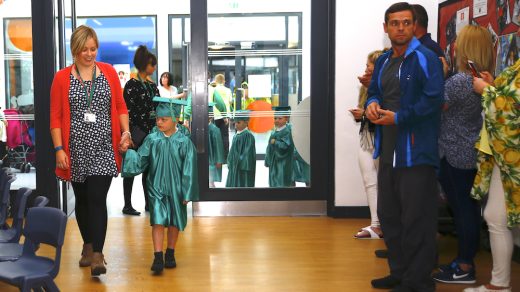Tales of transition

Transition from primary to secondary school is an important milestone in a child’s educational and personal development and, as such, is often met with mixed feelings. For an eleven year old, starting ‚ ‘big school’ is an exciting but nerve-wracking rite of passage.
Many look forward to the prospect of more independence, extra subject choices and a wider range of extracurricular activities. However, it is also a time of uncertainty and new levels of responsibility can often be cause for concern.
For most children, the transition process will trigger plenty of questions: Will I be able to make friends? How much homework will I get? What if I miss the bus? Who will help me if I get lost? What if I find secondary school too difficult?
Hopes and Fears
Speaking from personal experience, a group of girls from Holly Lodge Girls’ College in West Derby and a group of boys from St Francis Xavier’s College in Woolton offered insight into the trials and tribulations of young people in the midst of transition.
The most common concerns were first to emerge, and all pupils shared worries about losing and making friends.
“I was worried about losing my primary school friends to other schools,” says Nathan. “My best friend went to St Edward’s – I was upset and it knocked my confidence‚”. When asked how he adapted to this, Nathan says after school clubs had been a good way of making new friends and he believes that sports can really help with transition.
Millie had other concerns about friendship. Although she was coming to Holly Lodge with her best friends from primary school, she wasn’t sure how the dynamic would change once they arrived.
“I was worried about my close friends finding new friends,” she says. Part of the process of transition is navigating different relationships, and problems can arise when old friendships suffer as a result of new peers being introduced. Millie added that although the dynamic in the group had changed, the outcome had been positive and the girls have managed to widen their circle whilst holding on to original friendships.
For Emilia and Sophia, this was complicated further because the girls are originally from Poland and Malaysia. They discussed the difficulties of not only moving to secondary school, but to an entirely different country. Sophia talked about her desire to be accepted: “I was worried that because I am different I wouldn’t be able to find friends and nobody would like me.” Language, in particular, played a central role in Emilia’s transition process and she was concerned about her ability to understand.
“At first I didn’t understand others as they talk so fast and the accent is strong,” she says. “I was also worried everybody would laugh at my mistakes.” For children with English as an additional language (EAL), the idea of entering into the hustle and bustle of secondary school can be particularly overwhelming.
Myths and Legends
Both groups spoke of the ‘myths’ that were fed to them by older pupils. Legends involving strict teachers handing out detentions for no reason and even the age old story of having your head flushed down the toilet!
James was particularly concerned about detentions, saying “I kept thinking I would get a detention for being late for a class because I didn’t know where I was going.” Discipline, in the form of the old fashioned detention, is often feared by children moving on from primary school, where rules are more relaxed. In many primary schools, teachers follow a traffic light system for behaviour, warning children and giving them a series of chances before giving out punishment.
Despite the new level of discipline, the boys agreed that detentions were given out fairly and some even considered them to be a necessary measure in tackling bad behaviour.
Nathan highlights an interesting point about the difficulty of understanding, and adapting to, different teaching methods. “Every teacher has a unique approach and that can sometimes be difficult when changing from one lesson to another,” he says.
In primary school, children are able to develop a close relationship with the teacher, and vice versa, but the setup of secondary education provides more variety in teaching approaches – and this can take some getting used to.
The relationship between different year groups was a popular area for discussion. Jayda spoke of feeling intimidated by older pupils in the early days, saying: “I kept thinking about how to live up to the older pupils’ expectations – the Year 8s seemed to have so much confidence”. In a similar way, Joe spoke of the ‚’prank’ culture found in boys schools, adding “I thought the older pupils would send me the wrong way if I asked where a classroom was”.
The boys referred to this as ‘banter’, which often takes places on the ‘yard’ when playing football with older boys. However, the group was quick to point out the difference between banter and bullying.
“It’s not bullying because if the other person didn’t find it funny, they’d stop” says Joe. “It’s just healthy banter. Our school takes bullying seriously and there are even ways to report it anonymously on the website which is good.”
Despite wearing a uniform, an issue raised during both discussions was fashion and selfimage. Jayda spoke of how she worried for the entire summer about arriving with the right image in September.
“I was stressing over which bag and type of shoes to wear” she says. ‚”I thought I had to have expensive things and spent months trying to find the perfect ones”. For the boys, it wasn’t bags but coats and, again, they believed wearing the most expensive brands would help them fit in.
SATS and Sets
Perhaps the biggest shift from primary to secondary education is an academic one. Whilst SATS levels give Year 6 leavers some indication of their ability, most are unaware of how they compare to their peers. Mollie described becoming aware of this change, saying “I thought I was clever but I didn’t know how clever I was in comparison to others. I was put in set one for most subjects, but I now feel the added pressure of staying on top.”
Many secondary schools carry out tests in the first weeks of September, and place Year 7 pupils into sets depending on the results. Despite the initial pressure, Matthew found the streaming system to be useful.
“You’re actually less aware of difference when put into sets as everyone is equal and working on the same level,” he says. “This can build your self- confidence.”
The introduction of new subjects into a child’s timetable is par for the course in secondary school. What was once ‘science’ is split into biology, chemistry and physics – three very separate classes that take place in labs. Not only this, but having access to technical equipment and getting used to the language that accompanies it can make secondary school seem like a whole new world.
Mums and Dads
Coping with transition not only affects children but parents often have to deal with their child’s concerns as well as their own. Many parents struggle with a feeling of loss of control due to the comparatively detached world of secondary education. Unlike in primary school, where your child spends the year with one teacher, responsibility for their secondary education lies with many people. This is difficult enough for the child to get to grips with, let alone the parent!
Almost overnight, your child is given a set of responsibilities which include arriving to school and each class on time, completing homework efficiently, behaving correctly and bringing necessary equipment to school to name but a few. This responsibility demands a certain level of independence from your child, which naturally means they will become less dependent on you.
Both groups understood that their parents had been just as worried as them on their first day. Primary schools are often within walking distance of home whereas secondary schools can be miles away and therefore, travelling is a main concern for parents. Allowing your child to travel independently, and often on public transport, at eleven years old seems like a risk: What if he can’t find his way? What if she gets on the wrong bus? What if he doesn’t arrive on time?
Staying in contact also came top of the list. Luke spoke of his own fear that his mobile phone might break and he wouldn’t be able to contact his parents. This insecurity can work both ways and parents find comfort in knowing their child has a mobile phone with which they can contact them, particularly on the journey to and from school. Millie and Matthew’s parents had similar concerns about travel but both of them insisted this was unnecessary – their parents were being ‘overprotective’ and they could look after themselves.
For other parents, it was uniform that was a cause for concern. Every parent wants their child to look the part, but a full school uniform can be expensive. Add to it other necessities such as a bag, stationery, and a P.E kit and secondary school can become a financial strain for parents, particularly if they have several children in the school system.
Tips for Transition
Many schools are beginning to offer summer schools as a way of facilitating transition and easing Year 6 leavers into their new environment. Pupils from both groups attended summer schools provided by the prospective secondary school and believed them to be beneficial.
The summer school at Holly Lodge gave the girls a taste of life in secondary school and combined academic lessons with fun activities to encourage them to make new friends. At SFX College, the summer school was more sports focused and the boys were able to get used to the school surroundings, play sports and meet future peers.
Although many of the fears associated with the move up to secondary school are understandable and not completely unfounded, the pupils from Holly Lodge Girls’ College and SFX College discovered that their worries did not fully materialise – they had imagined a much worse scenario than the reality that confronted them on their first day. As with any new experience, it was the fear of the unknown.
As they approach the end of Year 7, the groups remarked that they were enjoying the sense of independence and freedom that accompanies transition as it made them feel grown up and in charge of their futures. Getting lost and finding your way again, both literally and metaphorically, is part of the process of transition from primary to secondary school, and indeed growing up. It prepares a child for adolescence and the academic demands of secondary education and beyond.




